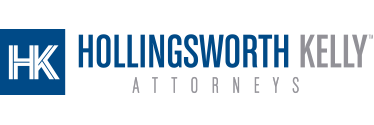Auto Insurance Terms
Auto insurance terms can be confusing. Here are some of the most common items you’ll come across.
Liability Coverage – If you are at fault for an accident, your insurance company will pay for the other party’s injuries and damages, up to the limits of your policy. Arizona law requires that vehicles carry a minimum $15,000/$30,000 policy. This means that for each occurrence, the maximum payment made on an individual claim will be $15,000, but no more than $30,000 will be paid for all claims combined, whether there are two, three or even more claimants.
Uninsured (UM) motorist coverage – If you are injured by a motorist who does not have liability coverage, your insurance company will pay for your injuries and damages.
Underinsured (UIM) motorist coverage – If you are injured by a motorist who has auto insurance but your injury damage exceed the value of his/her policy, you can make a claim against your own auto insurance policy.
Medical payments (Med Pay) coverage – This coverage will pay for medical expenses resulting from an auto accident for you or anyone in your household, and any passengers in your vehicle, no matter who is at fault.
Property Damage – Will pay for damage you cause to another vehicle. In Arizona the minimum amount required is $10,000.
Comprehensive – Will pay for damage to your vehicle for anything other than a collision, or for the theft of your vehicle. If you are still making payments on your vehicle you are required by your lender to carry Collision and Comprehensive coverage.
Collision – Will cover your vehicle if it is damaged in an auto accident.
Towing and Car Rental – Towing will cover the towing of your vehicle if it breaks down or is involved in an auto accident. Car rental will cover a predetermined amount to be paid toward a rental car of a specific number of days if your vehicle is damaged and undriveable after an auto accident. The minimum amount recommended is $25 per day for approximately 30 days.
This information is provided by the Hollingsworth Kelly to help you select the right coverage for your auto insurance needs. All too often, we see people who are injured by someone who does not have adequate insurance coverage. All insurance decisions should be discussed with your auto insurance agent so that you can make an informed decision to best suit your needs. This information is not intended to serve as legal advice.


